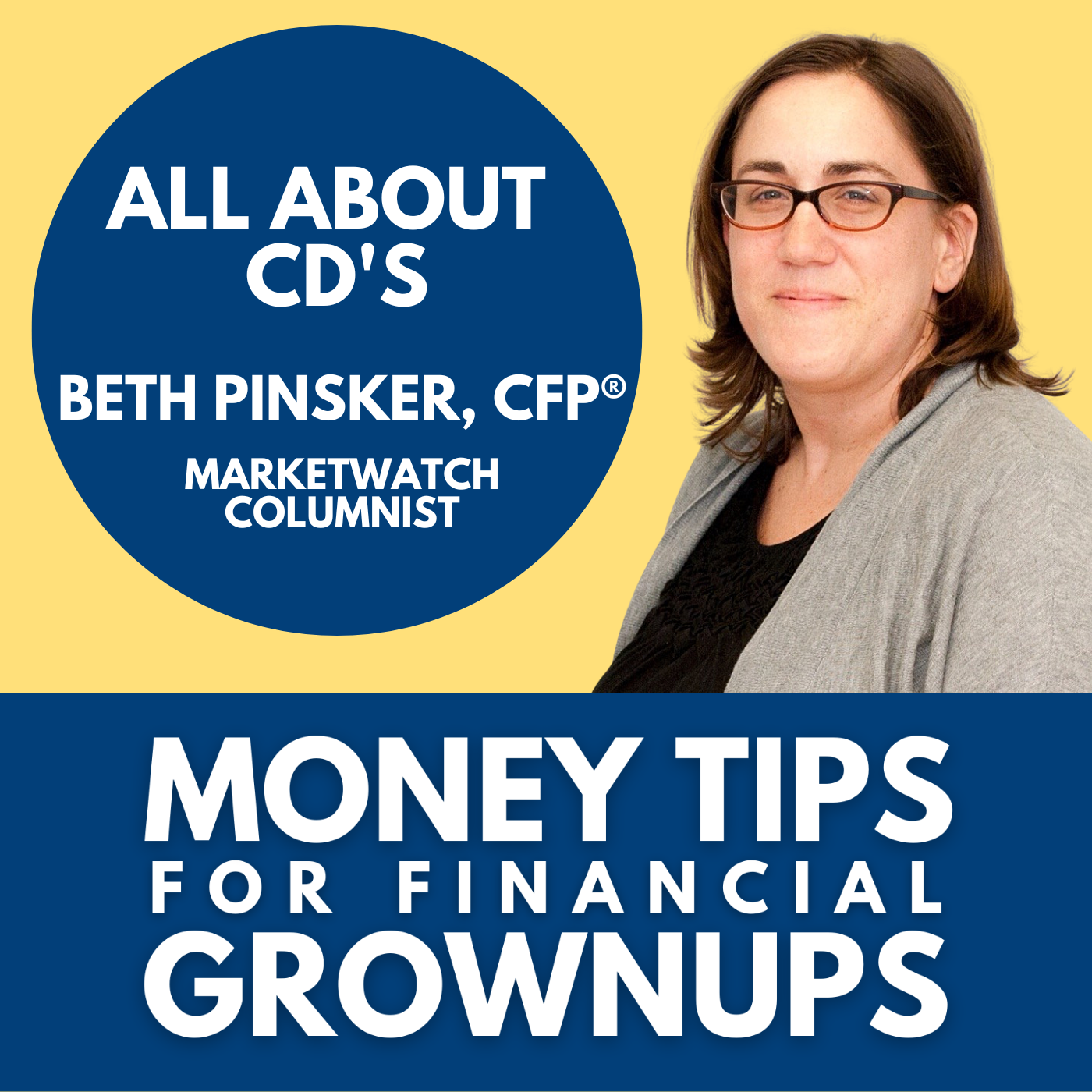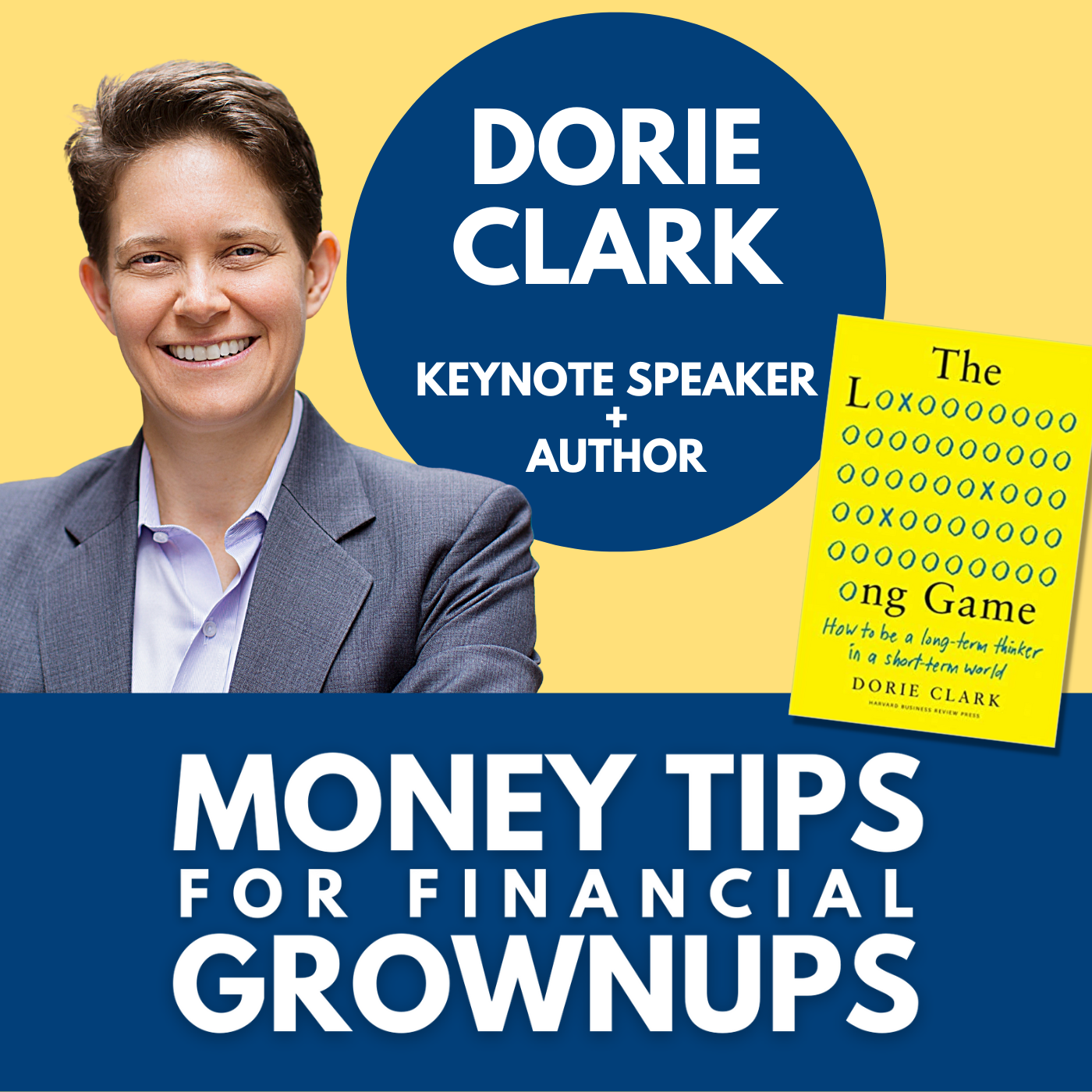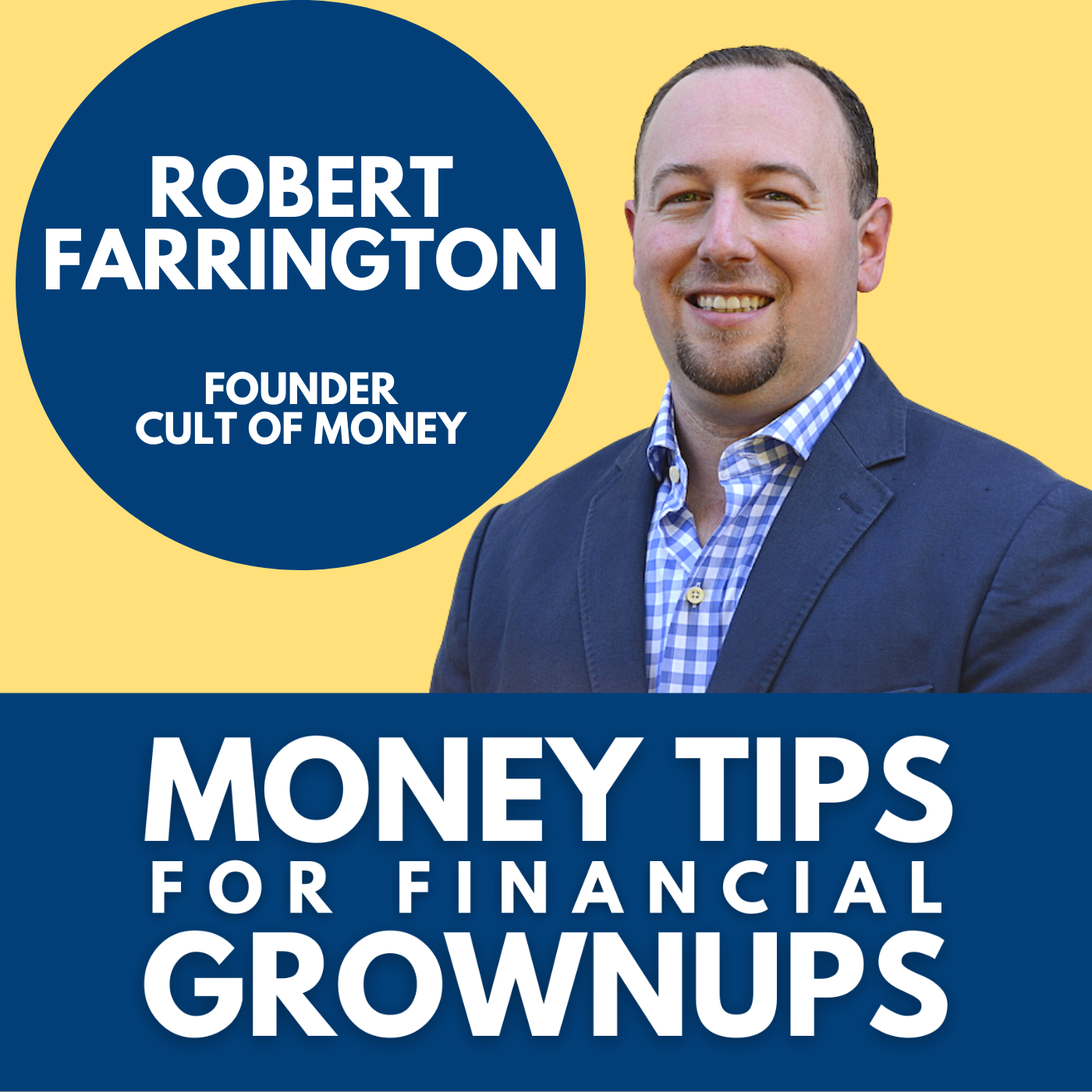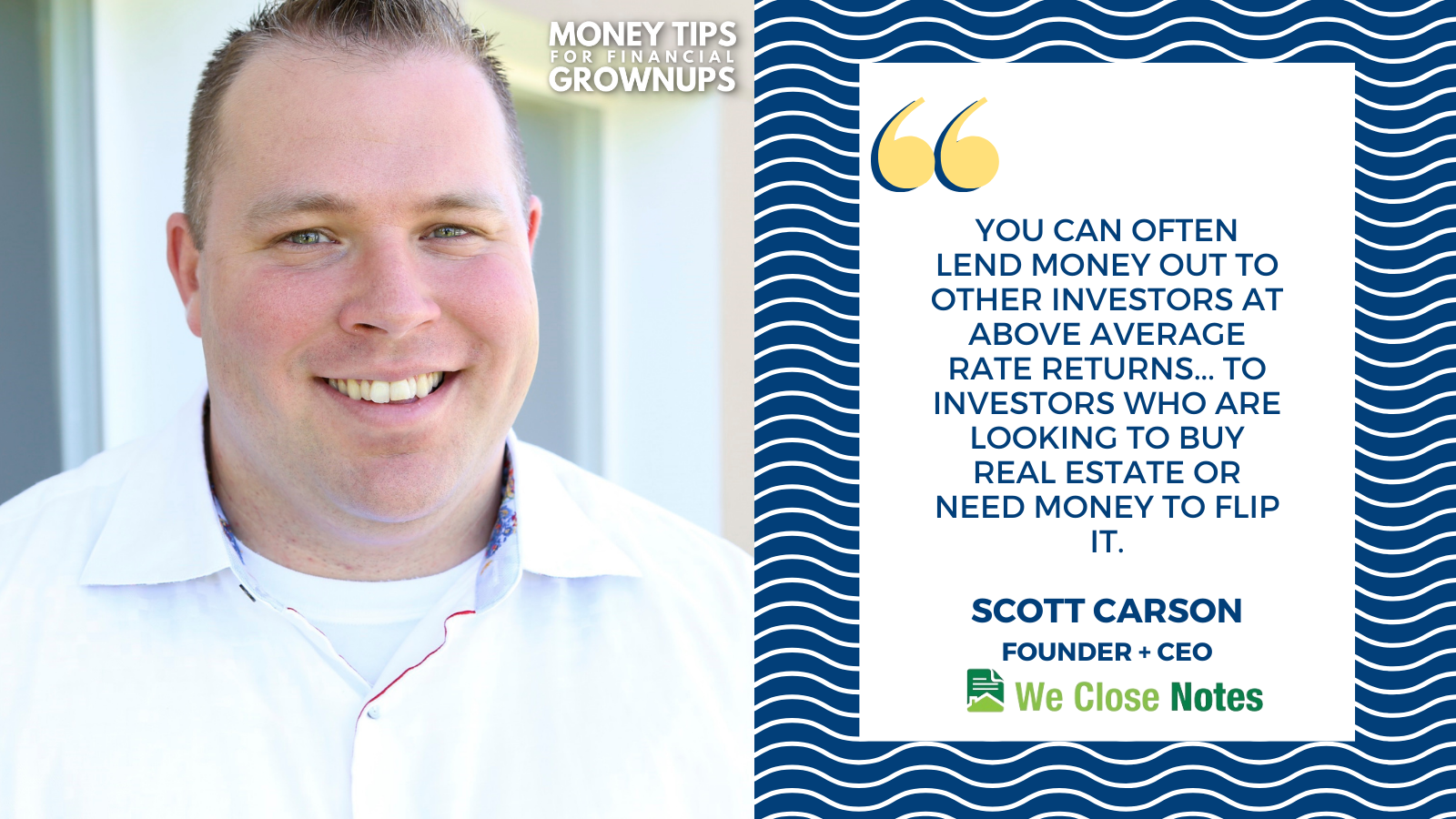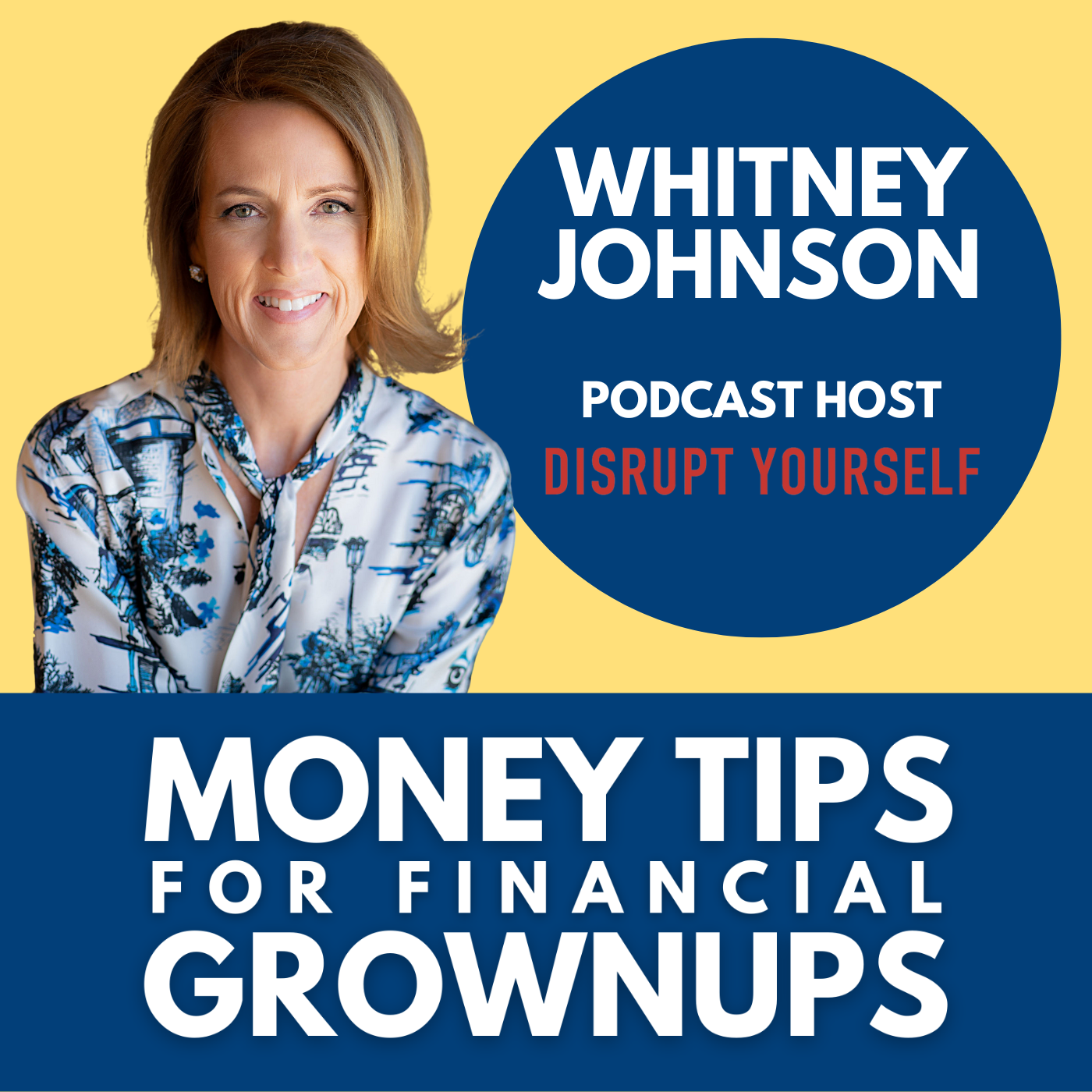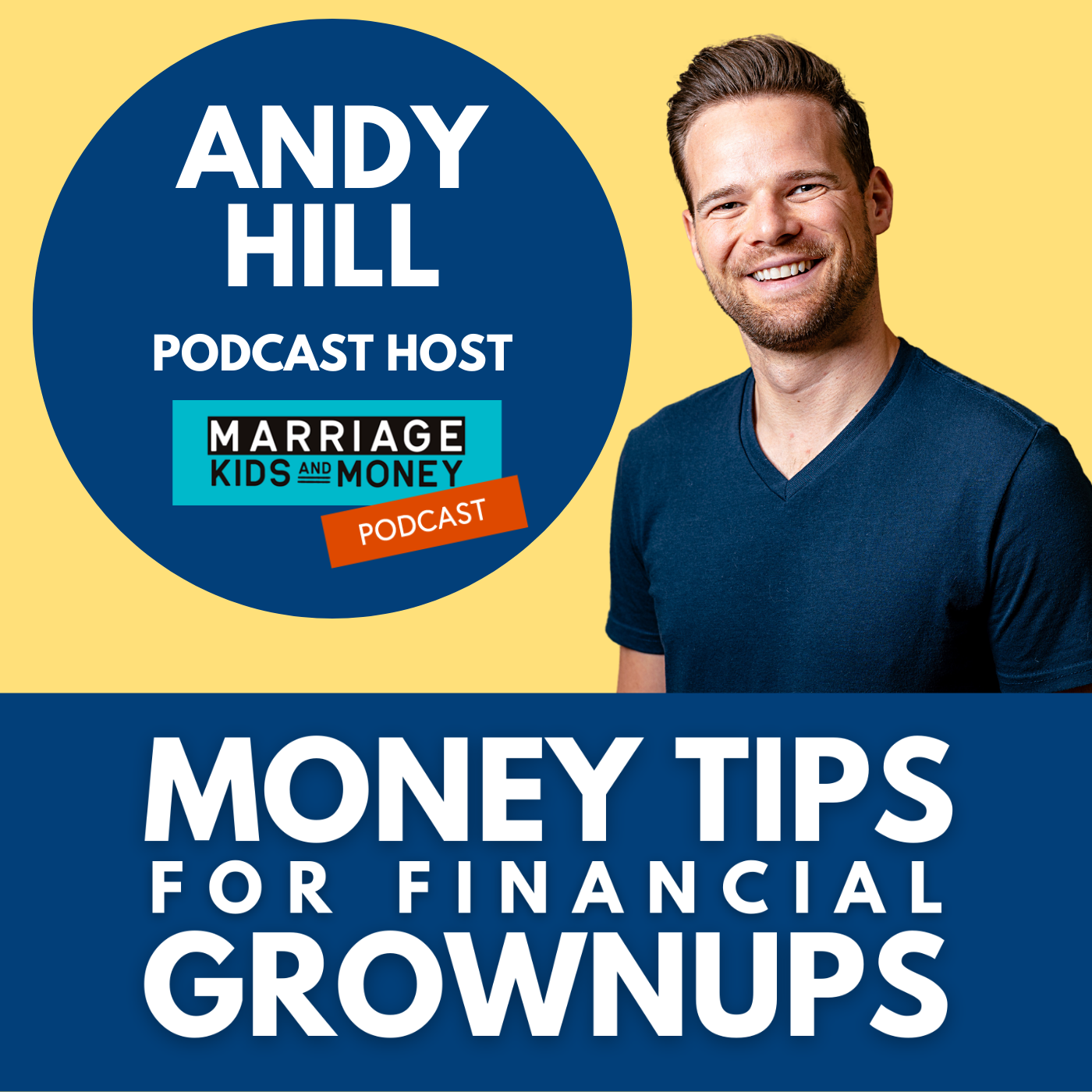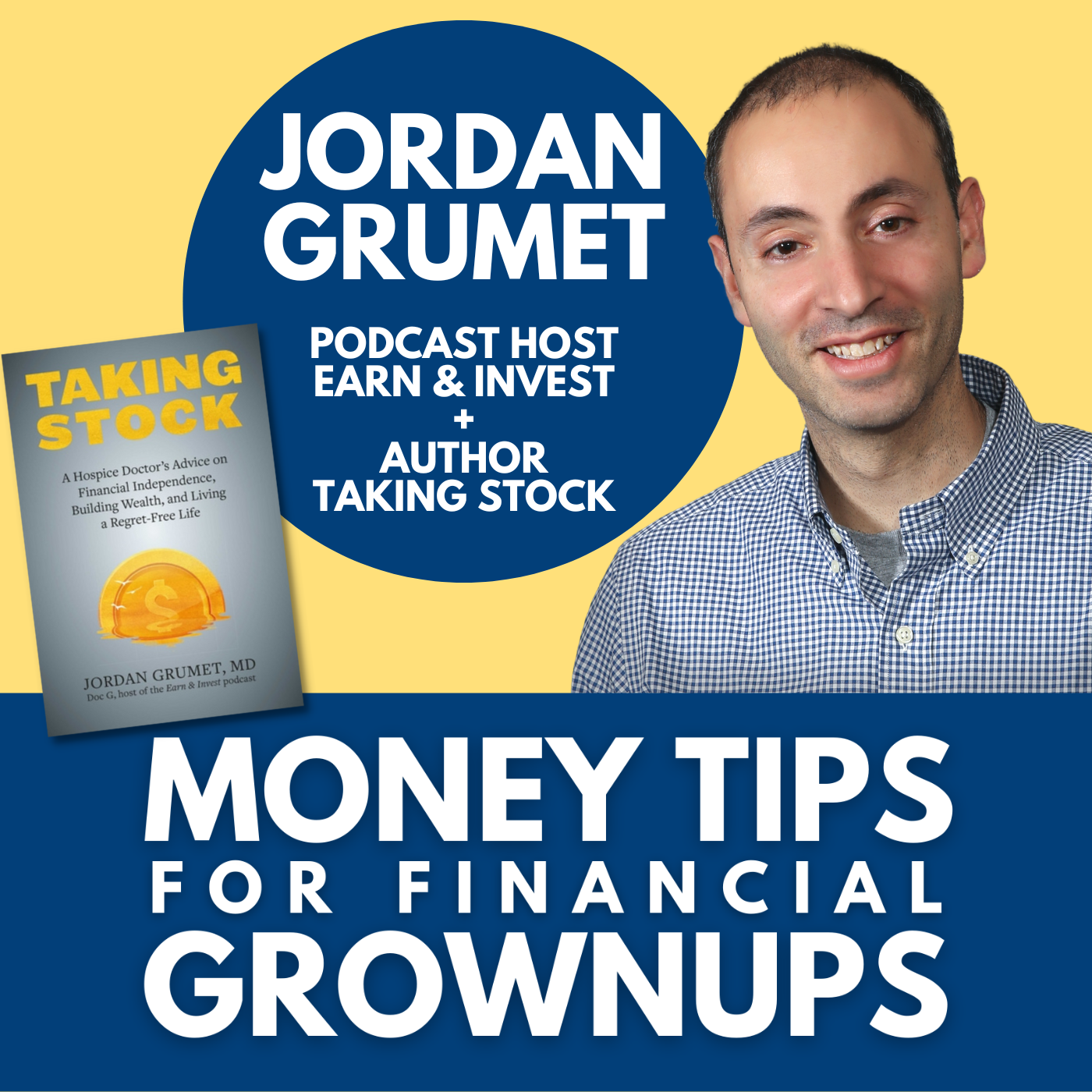Episode Description: Be Your Own CFO author and LifeBlood podcast host George Grombacher shares the experiences that pushed him to pivot on his priorities and advice on how we can be ready to make changes as well.
Timestamps & Main Points:
00:00 - Introduction
03:59 - Prioritizing going through different life stages
6:21 - Reevaluating your priorities
07:38 - Does reevaluating your priorities make you more willing to take risks?
08:56 - Being thoughtful in your investing is not the same as being conservative
12:00 - Our behaviors as human beings are predictable and maddening all at the same time
15:15 - If you write down your goals, your odds of achieving them are greater
George’s Bio:
George Grombacher has been a Financial Advisor for over 20 years, he’s been named to Investopedia’s list of the Top 100 Financial Advisors in the United States many years running. He’s the Founder and Chief Community Officer of Money Alignment Academy, President of Financial Consulting Professionals, Host of the LifeBlood podcast, and author of Be Your Own CFO: A Businesslike Approach to Your Personal Finances.
Links to resources mentioned in the episode!
Follow George!
Instagram - @moneyalignmentacademy
Facebook - @MoneyAlignmentAcademy
LinkedIn - @George Grombacher
Youtube - george grombacher - YouTube
Website - Speaking - Money Alignment Academy & gerogegrombacher.com
Follow Bobbi!
Instagram - @bobbirebell1
Twitter- @bobbirebell
LinkedIn- Bobbi Rebell
TikTok - @bobbirebell
Website- http://www.bobbirebell.com
Did you enjoy the show? We would love your support!
Leave a review on Apple Podcasts or wherever you listen to podcasts. We love reading what our listeners think of the show!
Subscribe to the podcast, so you never miss an episode.
Subscribe to the newsletter.
Share the podcast with your family, friends, and co-workers.
Full Transcript:
Bobbi Rebell:
I know the holidays are a time we're all supposed to get excited about, but sometimes it just feels like I can't celebrate until I get through my never ending to-do list. That includes gifts. It's exhausting. I mean, I love the smile on people's faces when I get them something that's going to be meaningful and that they love. But the truth is, it's also really hard and I'm really getting tired of giving people the same old, same old. I mean, I feel like we're finally emerging from this pandemic, and I just want something that will get them to smile.
So my team and I have been working really hard to up the ante over at Grownup Gear with some super fun new stuff. My personal favorite, the baby bibs and the onesies with phrases like, "I can't believe you are the grown up either" and new colors and designs of our top selling Generosity line. And for the holidays, if you spend just $50 on any of the items from our Generosity collection, we will gift you a $10 gift certificate that you can spend on something to be generous to, well, yourself. Just use code "holiday", H-O-L-I-D-A-Y. And thanks again to everyone supporting Grownup Gear. Your business helps support projects like this podcast, which remain free for all of you. Happy holidays, guys.
George Grombacher:
What are my priorities? How do I value my time? Who do I want to spend it with? What should I really be spending my money on? What should I be letting inside my head and focusing my attention on? What is most important to me? It's my sense of urgency has really gone up.
Bobbi Rebell:
You're listening to Money Tips for Financial Grownups with me, Certified Financial Planner, Bobbi Rebell, author of Launching Financial Grownups. Because you know what? Grownup life is really hard, but together we got this.
How have your financial priorities changed in the last couple of years? What impact has the pandemic had on the decisions that you make with your money and also with how you spend your time? Are you more careful and conservative with your investing and also your financial planning? Maybe you want a bigger emergency fund, for example, or maybe you actually feel compelled to take more risk because well, you have less of a feeling of security, so why not just go for it? Who knows what's going to happen, right?
Just some of the conversation topics I absolutely loved with my guest this week, George Grombacher. I've had the privilege of having been on his LifeBlood podcast. I also recently picked up his new book, Be Your Own CFO. Highly recommend, by the way. It's a great way to get organized as we head into the new year and really be deliberate about how you think of your own personal finances. George also has a financial wellness company called the Money Alignment Academy. You're going to love this interview. Here is George Grombacher.
George Grombacher, you're a financial grownup. Welcome to the podcast.
George Grombacher:
I am a financial grownup and thank you.
Bobbi Rebell:
You are definitely a financial grownup and congratulations not only on the success of your long-running podcast, the LifeBlood podcast, but you also have a book called Be Your Own CFO: A Businesslike Approach to Your Personal Finances, which I did enjoy reading. So congratulations on all of that.
George Grombacher:
Well, thank you for that as well. They are, money for better, for worse is part of our lives, and it's a passion of mine and it's fun to do the podcast, been fun to do it for the last five years. And it was fun to finally put pen to paper and write my first book.
Bobbi Rebell:
Full disclosure, we are recording this as I am recovering from COVID, so I look a little hellacious on camera, but we're just going to put it out there anyway. That also is a segue to talking about all the different things that we sort of prioritize when we do get sick, whether it's with COVID or something else, or we go through different life stages. George, you're going through some big changes in your life as well. So we're going to just pivot this conversation awkwardly as it is and talk about priorities. George, what do you have to say about priorities as we as a society move out of COVID, and you also have some news to share with the world?
George Grombacher:
Yeah. Well, I don't want to bury the lead. My wife and I have two kids, two boys, six and three, and we have a third on the way. She will be a little girl, so she's currently a little girl.
Bobbi Rebell:
She.
George Grombacher:
Anyway, so that that's the most exciting thing. And we were joking that we as a family are screwing up the math because four human beings it's a little easier to move to the world. Five, it'll be a little more challenging. You reassured me that it's going to be just fine. So I think that COVID taught us a lot of things and it was terrible for a lot of people, most people, and I'm grateful that we are slowly but surely coming out of it. Hopefully, one day we will be out of it completely. But who knows? I think that for a lot of us, it gave us the opportunity to question things.
We as a society, were questioning how we police our communities, how and where we work, how we educate our kids, all of these things. We had the Great Resignation. Small business was impacted, really everything. And so it was an opportunity for us. For me, I recognized I need to be stronger and more resilient. I need to be physically stronger, mentally stronger, financially stronger, emotionally stronger. How can I do these things? And so I think it's just been a really unique opportunity. It's caused me to really evaluate, reevaluate, change my thinking on what is most important to me because I can just go and make decisions about things easily, yes or no, chocolate or vanilla kind of a thing.
But if I'm going to make big decisions, I want to make sure that I'm making good decisions and decisions that are as aligned as possible with the things that I think are most important to me. The more aligned I can be in my decision-making from if I'm going to go out and buy a coffee this morning, or if I'm going to take a vacation this year, or if I can invest in Bitcoin or whatever, that's for the better. So that's something that I've been spending a lot of time thinking about.
Bobbi Rebell:
Do you feel that these sort of reevaluation of priorities, does it make you more risk averse or does it make you more likely to take risks? And what's your advice to people in terms of that?
George Grombacher:
For me, it's hastened a lot of my decision-making. I'm 44 years old and when I started the pandemic, I felt like I was 35 or something like that. But another thing that happened in 2020 was my brother passed away and it was just before the pandemic.
Bobbi Rebell:
Oh, I'm so sorry.
George Grombacher:
Thank you. That combined with everything else that we went through as families and communities and countries and a world, for me, I've always lived with a sense of urgency. I've always been a hard-working focused person, but it just changed. It was almost like a little bit of an awakening. Be like, "Okay, I've got these young kids, so there's that." My brother passes away and it's like, "Wow." And it's obvious that we're all going to die and I'm not afraid of that. But it was just a recognition as about as close as it gets that we do die and that it's time to start living on our terms. It's time to start living the lives that we want to live. And the only way to know how you want to live or live how you want is to know how you want to live.
And so that goes back to what are my priorities? How do I value my time? Who do I want to spend it with? What should I really be spending my money on? What should I be letting inside my head and focusing my attention on? What is most important to me? It's my sense of urgency has really, really gone up.
Bobbi Rebell:
And so does that make you more willing to take risks because you do know it's now?
George Grombacher:
I failed to answer your question on that one. Yes, it has changed my thinking about risk. When I was in my twenties, I made a lot of really, really risky investments. I invested in a lot of small company stocks and certainly was a lot riskier with perhaps my behavior. I think from a business perspective and the way that I'm choosing to write books or do things that I've been putting off, that's somewhat risky. With my investing, I think I have a better understanding of what the timeframes are, knowing that my kids got 14, 15 years to be investing. So wanting to make sure that I'm making more thoughtful investments, not necessarily conservative investments, but just more thoughtful.
Bobbi Rebell:
Tell me more about that. I want to distinguish, you said something interesting, not necessarily more conservative, but more... Because this is a big money tip for our listeners. It's being thoughtful in terms of your investing is not the same as being conservative. So that's a big money tip. Explain more about that.
George Grombacher:
Yeah. So there's a sliding scale or a spectrum, a continuum of my knowledge on different investments. I was at zero when it came to cryptocurrency. We could just use Bitcoin. Five years ago, I didn't even know what it was. Today, I'm probably at 70% out of 100, but I did end up buying Bitcoin when it dropped to $30,000. I believed that to have been a wise investment. Today, it's at $16,000, but I'm not looking at that and saying, "That was a bad decision to buy at 30." Now, am I buying more at 16? No, I'm not right now because I just have no idea.
So my approach to that was I believe that when it was at 30, that cryptocurrency, specifically Bitcoin, is a quality investment that is now on sale from where it was at $70,000 per coin down to 30. Where it's at from 16, well, I already made my investment into it. I put the money forward into that I had allocated based on my budget and my situation. So I'm not second guessing and saying, "I'm going to sell." But I'm also not in a position where I'm going to buy. So based on the information that is available to me at the time that I bought in where I am today, I'm just going to hold that investment. That's a specific one.
But that could be used for ETF investing if you are somebody who's getting started. Or it could be, "Should I be investing money in a small company?" If I'm a very wealthy person and I have additional monies, "How do I decide based on my current situation, what I should be invested in?" So risk, I think, is best addressed and best approached by measuring how educated and how knowledgeable I am on a specific area or area of investing, and then making assessments and decisions based on that. That doesn't mean I need to be an expert, but I need to be able to get the information and the resources.
So the answer could be, "I'm going to start working with an investment advisor" or "I'm going to just get more resources, get more education and more knowledge."
Bobbi Rebell:
And how has that evolved through the pandemic? Do you feel that you're more thoughtful with your investing? Do you think that people in general approach investing very differently because you mentioned crypto, we had NFTs, we had meme stocks, all of these sort of big trends that were talked about so much during the pandemic. Is the attitude towards them and should the attitude towards them be changing now? Especially with even the stock market one might say could be considered to be on sale. And I'm not giving anyone investment advice there, but it is lower than it's been.
George Grombacher:
Right yeah, theoretically speaking, it certainly is. Our behaviors as human beings are predictable and maddening all at the same time. You looked at when we were kind of midway through the pandemic, if we can think of ourselves at the end of it, personal savings rate had gone up, credit card debt had gone down and so we were becoming more conservative. Now, we're reading about how credit card debt is again spiking and we're sort of relapsing or going back to whatever our normal is, reverting to the mean. So in terms of investing, I assume that that means that the amount of capital that's going into investing is probably going down as the stock market goes down. I'm sure that the amount of money that's flowing into cryptocurrency is also going way down, which maybe that's a good idea, maybe it's not.
The thing about percentages and large numbers is that has very little to do with me as an individual and when you read them, it's kind of hard for us to get our brands around. So going back to what is most important, again to me, based on my situation and what it is that I'm trying to accomplish, I think that the more focused we can get and be on those fundamentals, although it's pretty boring and it's somewhat unsophisticated, the reality is, I just read about this, some recent survey said 77% of Americans are stressed out about money or we have anxiety about money. I don't have any anxiety about money. Am I thrilled that my investment in Bitcoin is now half of what it was when I bought it? No, I'm not thrilled about it, but it doesn't make me anxious because that's not money that I need to spend today.
So for the three quarters of Americans that are stressed about money, that to me suggests that we are not doing a good job thinking about our risk because that suggests we do not have financial peace of mind. That suggests that these are people that don't have cash saved up in the form of some kind of an emergency fund, however much that ought to be for your personal situation.
I don't think that there's ever a way to inoculate ourselves from financial stress or risk or anything like that. But pulling things back, taking a big step back and saying, "Okay, what would it take for me to not have to worry about money anymore?" So let me get to that spot and then it's, "Okay, I'm here. Now, where should I be deploying additional monies?" Is it in a place that I'm maybe going to be a little bit less comfortable with, but there's risk, so that means I'm going to get a potential greater return? I think that that's probably a pretty good time to be thinking about that.
Bobbi Rebell:
Going to your book a little bit, which we haven't had a chance to talk about, which is Be Your Own CFO: A Businesslike Approach to Your Personal Finances. One of the anecdotes I really enjoyed was you talked about a study, which they asked Harvard MBA students who had set goals and who had not, and then they followed them and the ones that set goals, and it seems obvious when I say this, but the ones that set goals were more likely to accomplish those goals. Tell us about that and how that applies to your view on how financial grownups can live their lives optimally.
George Grombacher:
Yeah. Every human being on earth understands "I should have goals", but so few of us actually do have goals, and this is me. It took me until I was 35 years old to actually take out a pen and write down goals. Amazing. But I intellectually knew I should have goals and I should write them down. That Harvard study, it's very famous. You just, if you're interested in looking at it, Bobbi summed it up. It just gives evidence. If you actually think about goals and then you go through the exercise of writing them down, your chances, your percentages, your odds of achieving them are exponentially increased.
But okay, classic behavior gap, I know that, but I don't do it. Same as "I should pay myself first". Same as "I should stay out of credit card debt". Same as "I should diversify my investing". It all goes back to that really basic stuff and it's like beating a dead horse. I talk about it so often, but the reason that it's so important is because so few of us actually do it, and this was myself too, this was also me. I've made every stupid mistake that people can probably make with money. Fortunately, I've made some good ones too, but I think that's just all too common.
Bobbi Rebell:
Very well said. Where can people follow up with you and learn more about all the things that you're doing, George?
George Grombacher:
I am all over the internet just like everybody else these days. LinkedIn's a great place to find me. You can go to georgegrombacher.com to learn more about me. Got a financial wellness company called Money Alignment Academy. Moneyalignmentacademy.com. There are probably other websites as well, but just entering George Grombacher into your favorite internet search engine should spit out different places to find me. And of course you can pick up the book at Amazon.
Bobbi Rebell:
Hey, grownup friends. There is something I don't talk about publicly that I have decided to start sharing, even though it can be a bit embarrassing. I get digital overload and it stresses me out for good reason. Because when you have so much junk on your computer because you're not as organized as you should be because you get caught up and all the things that you have to do. If you don't deal with it, all that stuff on your computer starts to really slow things down and can become a total drag on your productivity.
For me, there is nothing worse than finally motivating to get stuff done, only to be derailed by a sluggish computer that is just not cooperating. A little while ago, I decided I was going to stop just kind of hoping that things would get better and I was going to deal with it.
I downloaded something called CleanMyMac. It's from a company called MacPaw. I was skeptical, but I took a deep breath and I tried it. Long story short, it totally worked. I loved how I could see it work through my files with clear and easy to understand graphics. I could see what was messing things up and CleanMyMac would ask me for my okay before deleting files so that something I did need to keep didn't go bye-bye. That was one of my biggest fears.
I recently reached out to the company and they are offering 10% off to my financial grownup listeners who want to also get CleanMyMac. To get that 10% off CleanMyMac, you do need to go to my link. It is bobbirebell.com/cleanmymac, B-O-B-B-I R-E-B-E-L-L dot C-O-M / cleanmymac, and that is all one word.
I promise you, you will be so happy. I want you guys to be in touch with me. Let me know how it goes. You deserve to lower the stress of data overload. Trust me, so worth it.
What goals are you setting as we head into the new year? I want to hear from you, so please DM me on Instagram @BobbiRebell1. Also, I want to send you bonus content, free, free, free. So sign up for my newsletter. You can do so right in the show notes. You can also do it on my website, bobbirebell.com. And if you have money tips that you want to share with the community, I want to hear them. Email me at hello@financialgrownup.com. Maybe we'll include it in an upcoming newsletter.
It is the holiday season. Guess what the perfect gift might be for a favorite podcast host? Hint, hint, it's free. You guessed it, a simple review on Apple Podcast or wherever you listen or even just telling your friends about the podcast, maybe sharing a screenshot of it on social. Tag me so I know to look for it and I can share it too. And in all seriousness, I am so grateful to those of you who do help me get the word out and who do participate by signing up for my newsletter and just being in touch. It means a lot to me. Take a minute, write a review, do that screenshot. Thank you. I really appreciate all of your support.
Also appreciate George Grombacher for helping us all be financial grownups. Thanks everyone.
Money Tips for Financial Grownups is a production of BRK Media, LLC. Editing and production by Steve Stewart. Guest coordination, content creation, social media support, and show notes by Ashley Wall. You can find the podcast show notes, which include links to resources mentioned in the show, as well as show transcripts by going to my website, bobbirebell.com. You can also find an incredible library of hundreds of previous episodes to help you on your journey as a financial grownup. The podcast and tons of complimentary resources associated with the podcast is brought to you for free, but I need to have your support in return. Here's how you can do that. First, connect with me on social media @BobbiRebell1 on Instagram and BobbiRebell on both Twitter and on Clubhouse, where you can join my Money Tips for Grownups Club.
Second, share this podcast on social media and tag me so I can thank you. You can also leave a review on Apple Podcasts. Reading each one means the world to me. And you know what? It really motivates others to subscribe. You can also support our merch shop Grownupgear.com by picking up fun gifts for your grownup friends and treating yourself as well. And most of all, help your friends on their journey to being financial grownups by encouraging them to subscribe to the podcast. Together we got this. Thank you for your time and for the kind words so many of you send my way. See you next time, and thank you for supporting Money Tips for Financial Grownups.













